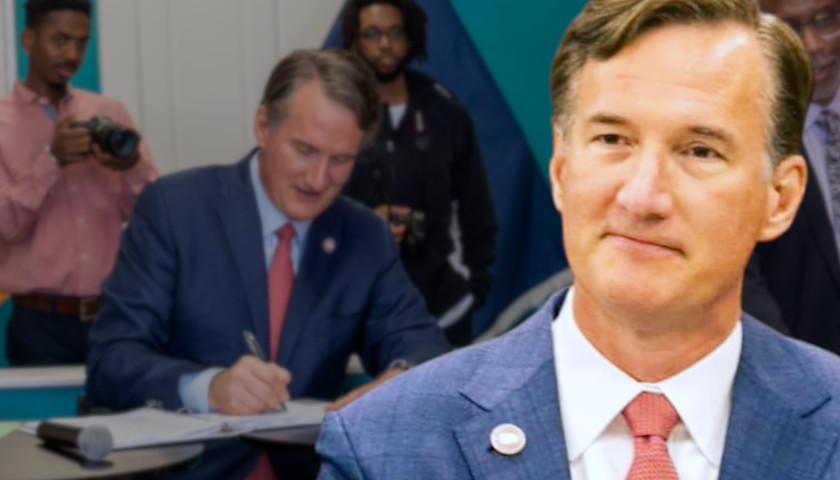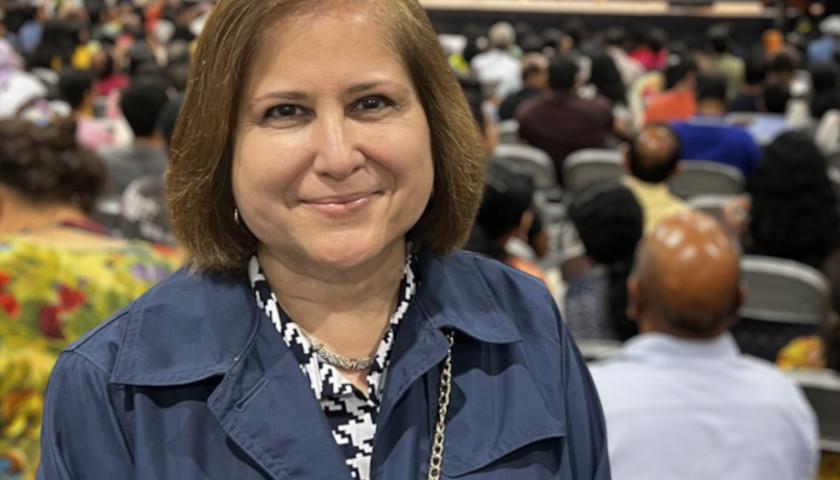After passing in the Senate 34 to one, Senator Bill Stanley’s (R-Franklin County) constitutional amendment to require equal educational opportunities in all Virginia schools was killed by the House of Delegates Privileges and Elections Committee. Virginia’s constitution requires that free school be provided for all school-aged children. Stanley’s bill SJ 275 would have added a requirement that those schools include “equitable educational opportunities” for all school-aged children.
“There is a flaw in that section of the Constitution […] that really allows the General Assembly to kind of skirt by providing an equitable, equal education to every student. This is strive-to kind of language. And because of the strive-to language, there’s no legal teeth to it,” Stanley told The Virginia Star. “What I tried to do was make sure that we in the General Assembly ensured that every child regardless of their zip code, whether they’re in Petersburg or Harrisburg, whether rural or inner city, that they receive the same educational opportunity.”
When describing the bill to legislators, Stanley said, “Unfortunately what I see right now is that a child in my area, because we don’t have a modernized school, because we don’t have the capacity, is not getting the same education as a child [in Fairfax Public Schools.] And so they come out unequal. One is more highly trained perhaps for a 21st century workforce and economy, and the other may not be.”
In the Privileges and Elections Committee, Lieutenant Governor candidate Delegate Mark Levine (D-Arlington) explained why the Constitutional Amendments subcommittee decided not to recommend SJ 275 and other amendments. Levine said the legislators picked their top two. The General Assembly has approved an amendment to repeal a same-sex marriage ban, and is working on an amendment to automatically reinstate felon voting rights. Levine explained that although the subcommittee considered reporting a third amendment, they decided against it. After the General Assembly passes a constitutional amendment twice, it goes to a ballot for voters to approve.
“We decided that given that […] there had not been three on the ballot since 2006 , that it was an unusual thing and that was the general consensus,” Levine said. “We decided that just due to the question of putting too much on the ballot for the voter.”
Stanley told The Star, “They just believe the voter doesn’t have the capacity to consider more than two amendments, which is ridiculous. It shows, I think, their regional arrogance, and also their belief that the voter in Virginia is not smart, which is completely wrong for them to think that way.”
Stanley said as an alternative, he proposed a ballot referendum asking voters if they would be willing to fund education through a general fund bond this year, but legislators asked him to wait a year.
“Most of these legislators are from northern Virginia and the more affluent areas of the eastern part of the state. They’ve got theirs. They have their shiny schools. They have their modern schools,” Stanley said.
Stanley told The Star that Virginia’s general fund, combined with local property taxes, pays for schools. Virginia tends to give more resources to less wealthy areas, because those areas can’t raise enough money off property taxes to pay for schools. But even so, he said rural and inner-city communities are getting left behind, and just raising property taxes in those areas isn’t enough to solve the problem.
“I think the estimation right now to fix our schools and modernize every school, in our inner cities, in our rural areas, to make them comparable to northern Virginia, is $16 billion and it’s growing every day,” he said.
Stanley said that by providing some more money for modernization either from taxes or bonds, the state could attract grants and other sources of local funds. He said education advocates like the Virginia Education Association like the idea of improving schools, but it isn’t a priority.
He said, “Their priority is raising teacher salaries rather than fixing the crumbling schools. So as long as the teacher’s being paid a certain amount, they can walk into a school that’s falling around the ears of the children, and they’re happy. They’re fine. Which is ridiculous in my assessment.”
Democratic lieutenant governor candidate Paul Goldman and Stanley have been advocating for more funding to modernize schools for years. In a recent editorial published by Blue Virginia, Goldman said Republicans were trying to capitalize on the rural-vs.-northern Virginia dialogue as an election year issue, but that they’ve been mostly absent from the discussion about school modernization otherwise.
“I have been writing and talking about the situation for many years. No rural legislator much cared. To be fair, no Northern Virginia legislator cared either,” Goldman wrote. “Not surprisingly, none of those rural legislators now praising Stanley and attacking NOVA were a cosponsor.”
In his op-ed, Goldman describes how through the years, sales tax has continued to be used for roads, even when internet sales tax began to be collected. Goldman told The Star that state sales tax had originally been set aside for funding education, but that in 1986, that money began to be used to pay for roads and transportation, a priority that continues to modern politics.
Goldman said that this year, legislators and the media have been focused on flashy issues like marijuana legalization, repealing the death penalty, and removing the same-sex marriage ban from Virginia’s constitution. Goldman said removing the ban was symbolic because the ban has already been ruled unconstitutional. He criticized Virginia Democrats for not doing more to support educational equality.
“It’s the basis of the party,” he said. “Because as [Martin Luther King, Jr.] said, it’s the great equalizer. If you don’t fix education, how are you going to equalize things?”
Goldman added, “Generally, you do the sacred matter before you do the symbolic stuff. They didn’t even care.”
Stanley told The Star that Democratic gubernatorial candidate Senator Jennifer McClellan (D-Richmond) was an ally on the issue, but that most other Democratic legislators hadn’t worked with him. McClellan offered an amendment to change wording in the bill from equal to equitable.
“She was saying ‘equal’ education may cause one school system not to be able to offer something where another one has to,” Stanley said. “I agreed with her. So using the word ‘equitable’ educational opportunity is more acceptable to Democrats, and she thought, quite frankly, it should have been acceptable to all Democrats. So I give Jen McClellan a lot of credit.”
Stanley said he’s worked with McClellan on school modernization issues before. He said, “She’s been a real champion, and she’s been almost the only person across the aisle that has worked with me on that, and so I give her a lot of credit.”
Stanley said that improving public education opportunities is the only way to break the poverty cycle for many communities.
“We have a constitutional obligation, written already in the constitution, to create those opportunities. To give every child that equal opportunity,” he said, “to break the cycle of poverty, to live the American dream, be whatever they want to be. And it’s because of their zip code that they’re being prevented that opportunity.”
Stanley said, “And that’s the crime that the General Assembly is committing by not taking this on wholeheartedly.”
– – –
Eric Burk is a reporter at The Virginia Star and the Star News Digital Network. Email tips to [email protected].





